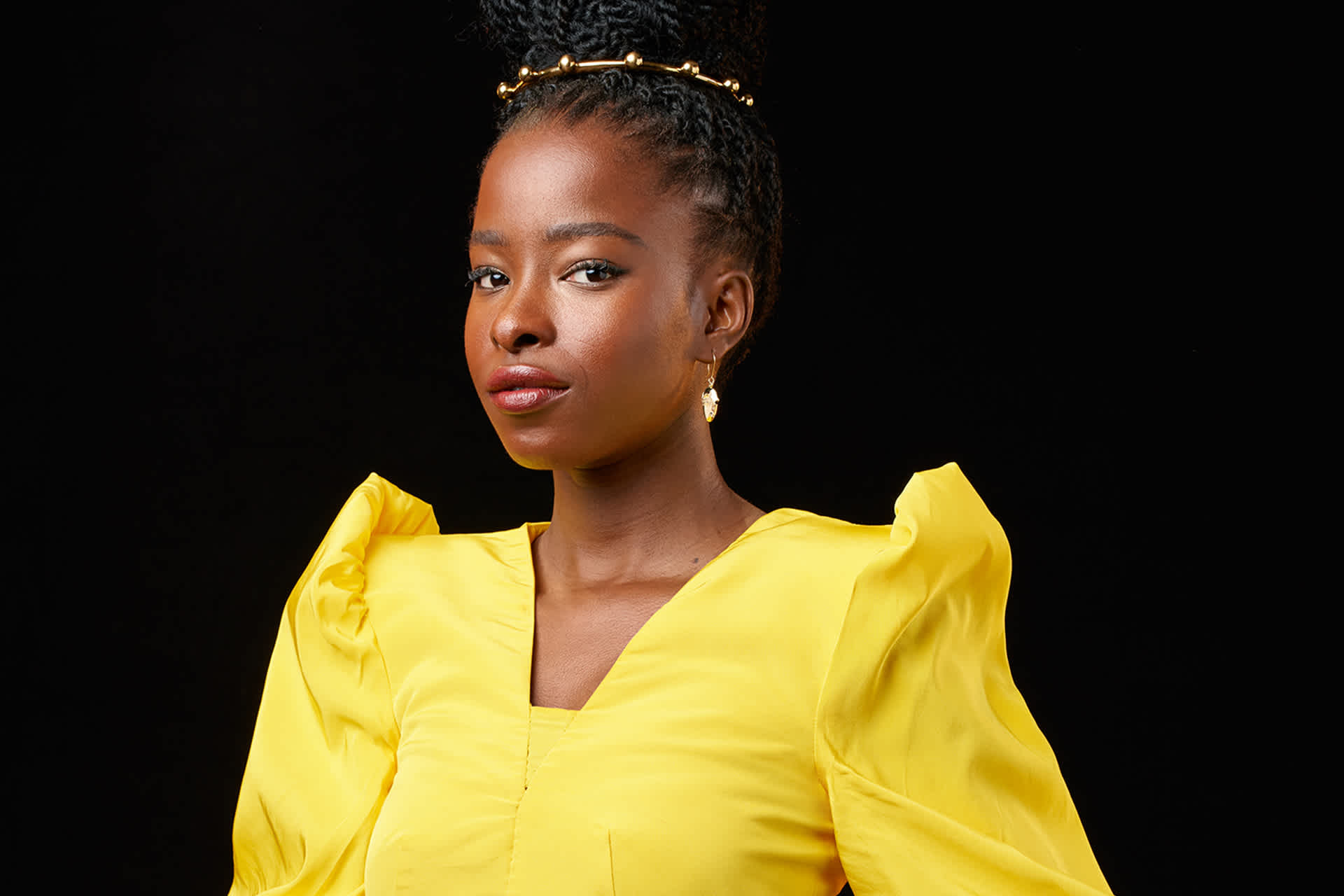A Way with Words

Amanda Gorman, the country’s first National Youth Poet Laureate, captivated the world on January 20, 2021, when she read her poem “The Hill We Climb” at the presidential inauguration. It was soon announced that she’d recite a poem at the Super Bowl. Former First Lady Michelle Obama heard Gorman speak at the inauguration ceremony. Here, she interviews Gorman about poetry, history, and hope.
I was moved as I watched you read your poem. How did you prepare yourself for a moment like that?
Everything was moving so quickly, I didn’t get to really sit down with the text until the night before. There was a lot of night-before performing in the mirror.
Poetry sometimes gets a bad rap. People think it’s all stuffy. How can we make poetry accessible and cool?
Poetry is already cool. Where we run into trouble is that often we are looking through such a tight pinhole of what poems can be. Where we can start is by highlighting and celebrating poets who reflect humanity in all of its diverse colors.
You have a mantra you recite to yourself before performing. Can you share it?
It’s inspired by Lin-Manuel Miranda’s lyrics in Moana, in “Song of the Ancestors.” Whenever I listen to songs, I rewrite them in my head. That song goes: “I’m the daughter of the village chief / We’re descended from voyagers who made their way across the world.” Something like that. I wanted something that I could repeat because I get so terrified whenever I perform. So my mantra is: “I’m the daughter of Black writers who are descended from freedom fighters who broke their chains and changed the world. They call me.”
“The Hill We Climb” mentions your being a descendant of slaves. What role does poetry have to play in helping you make sense of our history?
Poetry is the lens we use to interrogate the history we stand on and the future we stand for. It’s no coincidence that at the base of the Statue of Liberty, there is a poem. Our instinct is to turn to poetry when we’re looking to communicate a spirit that is larger than ourselves.
What was your experience of the inauguration? Were you able to listen to the performances and speeches, or were you just focused on what you came to do?
I was living in two spheres of my mind. There was the “Wow, Joe Biden’s speech was amazing. Lady Gaga just killed it.” At the same time, 66% of my brain was dedicated to questions: “How am I going to get up to the podium without tripping? My hands are cold. Am I going to be able to flip these pages?”
People know you as something of a prodigy—a poet who set the country on fire.
It’s easy, when you see someone who’s young have this type of astronomical life change, to think that it’s instantaneous. I want to highlight that this took a lifetime. Something I haven’t told anyone else is, for the past six years, whenever I’ve written a poem that I knew was going to be public or performed, I told myself, “Write the inauguration poem.” And what that meant for me is: Write a poem that is worthy of a new chapter in the country. Write something that is brave enough to be hopeful.
As you know, I have two daughters around your age. What does sisterhood mean to you and your twin?
As twins, we’re actually pretty dissimilar. But what bonds us isn’t our personalities; it’s our values. We’ve been raised like you, by a strong Black woman who taught us to value our ideas and our voices.
Do you have any advice for young girls, and Black girls in particular, who earn their way into the spotlight?
I would say to anyone who finds themselves suddenly visible and suddenly famous: Think about the big picture. You really have to crown yourself with the belief that what I’m about and what I’m here for is way beyond this moment. I’m learning that I am not lightning that strikes once. I am the hurricane that comes every single year, and you can expect to see me again soon.
This interview has been edited for length and clarity. It was originally published in TIME on February 4, 2021.


